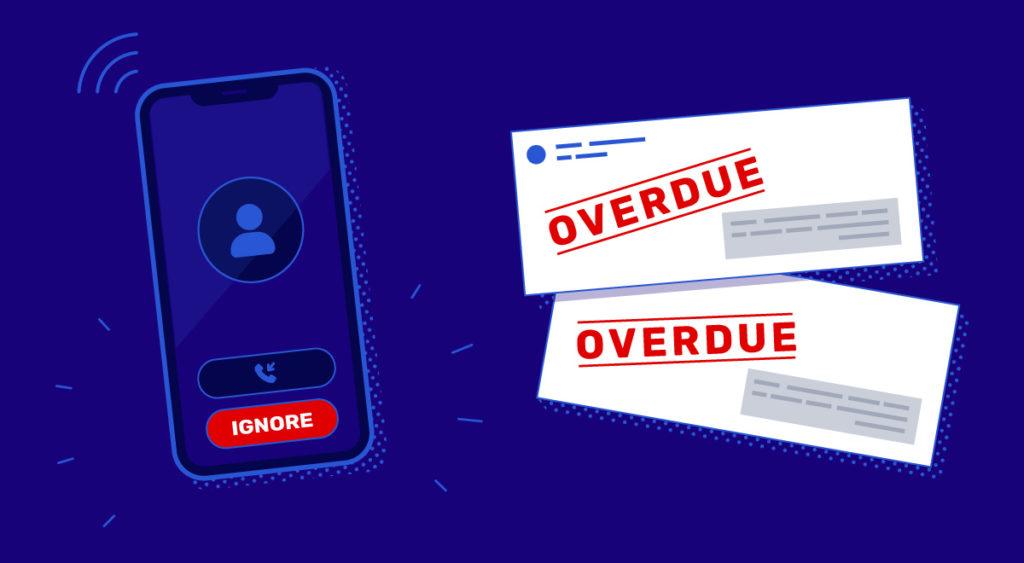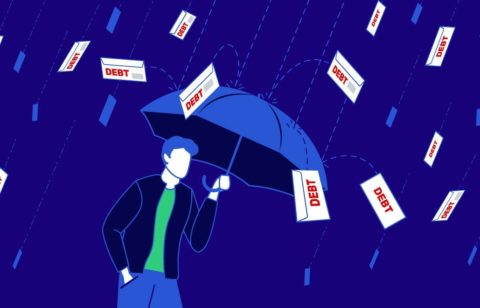Don’t let calls from debt collectors frighten you. There are realistic ways to stop those harassing phone calls as you do have rights under the Fair Debt Collection Practices Act and the Telephone Solicitation Act. Here’s a 9-step program that is usually able to stop 99% of those nasty phone calls.
Step 1: Never discuss the debt
Just refuse to discuss whichever debt the collector is calling about.
Step 2: Get their name, address and phone number.
When a debt collector calls, make sure you get his name, telephone number and mailing address. You want to make sure the collector knows you can specifically identify him in the future if necessary.
Step 3: Make a phone log.
Start a phone log next to your telephone. Write down when you receive any calls along with their times and dates.
Step 4: Refuse to provide any information
Don’t give the collector any information about yourself, including your phone number, address, banking information, driver’s license number or Social Security number. Do not acknowledge the accuracy of any information the collector provides. You can confirm that you are the right person but don’t have to reveal anything else. This is because any information you provide will be included or summarized in a call management software database.
Step 5: Inform the collector that he has the right to remain silent
Tell the debt collector that you are recording the phone call and that he has the right to remain silent and that anything he says may be used against him in a court of law. The collector will probably end the call at this point. If not tell the collector that you do not want to receive any more calls from this organization and that any future calls will consist of harassment and will be a Class 1 Misdemeanor under your state’s law.
Step 6: Make him personally responsibility
Let the collector know that if you receive any more calls from his organization you will hold him personally responsible – individually – with your state’s attorney general’s office.
Step 7: Request validation
Insist that the collector provide validation that you owe the bill and that he has the right to collect it. Never say that you will not pay the bill and again, do not discuss anything about the bill specifically.
Step 8: Ask for a copy of the company’s do not call policy
Request that the collector provide you with a copy of his organization’s do not call policy as required by the Telephone Solicitation Act.
Step 9: Send a letter requesting validation
Mail the collection agency a letter requesting validation of your bill in writing. Send your letter registered and return receipt requested so that you can prove the agency received it. You have the right to ask the agency why it thinks you owe the debt and to whom you owe it. The collection agency must provide you with the name and address of the original creditor, the creditor’s account number, and the amount you owed at the time the debt was transferred to the agency. Finally, you should request documentation that there is a valid reason for claiming that you need to pay the debt to the current creditor. As an example of this, you could ask for a copy of any written agreement that was generated as part of your original obligation to pay the bill.
Also, make sure you include the fact that you do not wish to receive any more phone calls from the collector or his organization. According to the Fair Debt Collection Practices Act (FDCPA), once the collection agency receives your letter it‘s allowed to contact you only once more – to either tell you it won’t be contacting you again or to advise you it will be taking some specific action such filing suit.
You have other important rights when dealing with debt collectors under the FDCPA as explained in this video from the Federal Trade Commission.
99% of all phone calls
If you follow this 9-step procedure, you should be able to eliminate 99% of all phone calls from debt collectors. Unfortunately, there are some collectors so unethical that not even this procedure will stop them from calling you. If this occurs, there are several actions you can take – again per the FDCPA. First, as mentioned above you can file a complaint with your state’s attorney general’s office. If you do this, be sure to include the debt collector’s specific name and phone number you should have gotten as part of Step 2. In addition, you have the right to hire an attorney to sue the collection agency. While you are limited to collecting only $1000 in damages, you can also collect for your attorney’s fees and for any other out-of-pocket expenses such as lost wages you might have suffered as a result of the harassment.
Know your state’s statute of limitations
It’s also important that you know your state’s statute of limitations. For example, in many states the statute of limitations on credit card bills is just five years and for other bills either seven or 10 years. What this means is that if a collector calls and tries to harass you for a credit card bill that’s more than five years old, the odds are that you are no longer required to pay it.
Change your phone number
If none of this works, you could consider changing your phone number. Unfortunately, given the amount of information that debt collectors can access via the Internet these days, this might give you only a short-term respite before the agency tracks you down again. Of course, if your have some form of caller ID on your phone, you will eventually learn to recognize the collector’s phone number and can just not answer the call. Do this often enough and the collector may give up.







